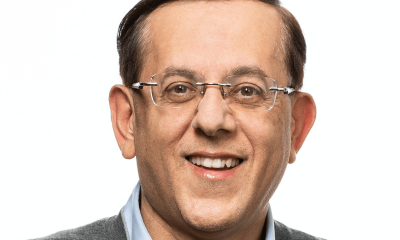Technology
Federal appeals court rules Trump can’t block people on Twitter

On Tuesday, the 2nd U.S. Circuit Court of Appeals in New York upheld a previous ruling that President Trump violated the First Amendment rights of Twitter critics when he blocked them.
The new ruling upheld a May 2018 decision that was the result of a lawsuit filed by the Knight First Amendment Institute at Columbia University on behalf of seven plaintiffs that Trump had blocked on Twitter.
Judge Barrington D. Parker wrote in the opinion:
We do not consider or decide whether an elected official violates the Constitution by excluding persons from a wholly private social media account. Nor do we consider or decide whether private social media companies are bound by the First Amendment when policing their platforms. We do conclude, however, that the First Amendment does not permit a public official who utilizes a social media account for all manner of official purposes to exclude persons from an otherwise‐open online dialogue because they expressed views with which the official disagrees.
The opinion also impressively lays out how Trump and the White House have gone to great lengths to declare Trump’s @realdonaldtrump account as “official.”
Of course, a consequences of this is that his account is subject to the post-Watergate Presidential Records Act of 1978. By blocking users from this account, the opinion said, “the government had engaged in viewpoint discrimination.”
The opinion also points out that because Trump’s Twitter account features more than just his thoughts — including Trump’s retweets and discussion in reply threads to Trump’s initial tweets — the account is not privy to protection under the “government speech doctrine,” which “does not require government to maintain viewpoint neutrality when its officers and employees speak.”
But perhaps the greatest parting shot toward the Trump administration comes in the conclusion to the opinion.
The irony in all of this is that we write at a time in the history of this nation when the conduct of our government and its officials is subject to wide‐open, robust debate. This debate encompasses an extraordinarily broad range of ideas and viewpoints and generates a level of passion and intensity the likes of which have rarely been seen. This debate, as uncomfortable and as unpleasant as it frequently may be, is nonetheless a good thing. In resolving this appeal, we remind the litigants and the public that if the First Amendment means anything, it means that the best response to disfavored speech on matters of public concern is more speech, not less.
The ruling figures to have a big impact on elected officials all over the country who maintain social media accounts, setting a standard for whom they can and cannot block.
As for Trump, it’s unknown if the Justice Department will challenge this ruling and pave the way for the Supreme Court to potentially rule on the case.
Mashable has reached out to reps at Twitter, the Knight Foundation, and the Department of Justice for further comment on Tuesday’s ruling.

-

 Business7 days ago
Business7 days agoTesla’s new growth plan is centered around mysterious cheaper models
-

 Business6 days ago
Business6 days agoXaira, an AI drug discovery startup, launches with a massive $1B, says it’s ‘ready’ to start developing drugs
-

 Business6 days ago
Business6 days agoUK probes Amazon and Microsoft over AI partnerships with Mistral, Anthropic, and Inflection
-

 Entertainment4 days ago
Entertainment4 days agoSummer Movie Preview: From ‘Alien’ and ‘Furiosa’ to ‘Deadpool and Wolverine’
-

 Business5 days ago
Business5 days agoPetlibro’s new smart refrigerated wet food feeder is what your cat deserves
-

 Business4 days ago
Business4 days agoHow Rubrik’s IPO paid off big for Greylock VC Asheem Chandna
-

 Entertainment3 days ago
Entertainment3 days agoWhat’s on the far side of the moon? Not darkness.
-

 Business4 days ago
Business4 days agoThoma Bravo to take UK cybersecurity company Darktrace private in $5B deal





















